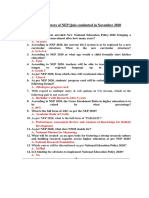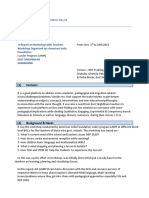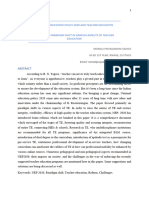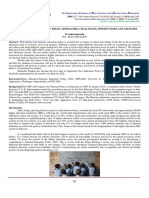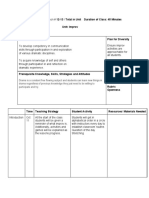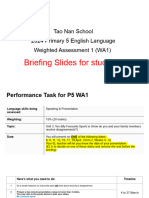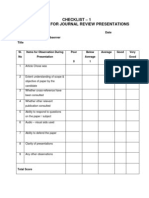0% found this document useful (0 votes)
72 views8 pagesNEP Padra
NEP 2020 aims to transform the Indian education system by introducing a new 5+3+3+4 school structure, emphasizing experiential and multidisciplinary learning, and promoting the use of regional languages as the medium of instruction up to Grade 5. It also focuses on integrating the Indian Knowledge System into modern education while ensuring teachers play a crucial role in facilitating these changes. The policy advocates for continuous professional development for educators and aims for a 100% Gross Enrollment Ratio in school education by 2030.
Uploaded by
Nailesh LimbasiyaCopyright
© © All Rights Reserved
We take content rights seriously. If you suspect this is your content, claim it here.
Available Formats
Download as DOCX, PDF, TXT or read online on Scribd
0% found this document useful (0 votes)
72 views8 pagesNEP Padra
NEP 2020 aims to transform the Indian education system by introducing a new 5+3+3+4 school structure, emphasizing experiential and multidisciplinary learning, and promoting the use of regional languages as the medium of instruction up to Grade 5. It also focuses on integrating the Indian Knowledge System into modern education while ensuring teachers play a crucial role in facilitating these changes. The policy advocates for continuous professional development for educators and aims for a 100% Gross Enrollment Ratio in school education by 2030.
Uploaded by
Nailesh LimbasiyaCopyright
© © All Rights Reserved
We take content rights seriously. If you suspect this is your content, claim it here.
Available Formats
Download as DOCX, PDF, TXT or read online on Scribd
/ 8
















